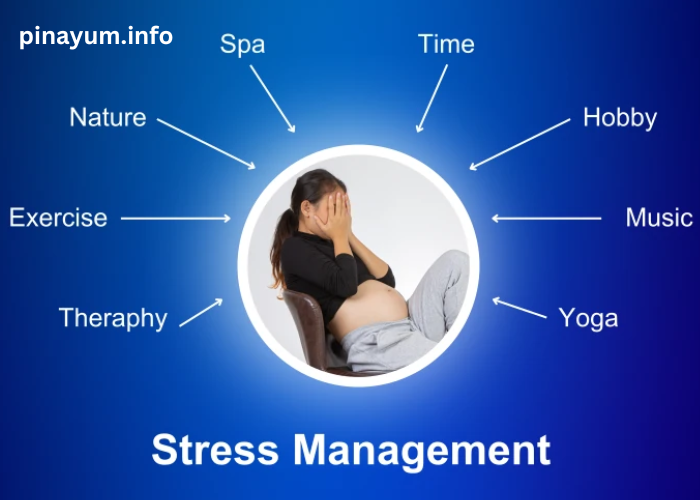In today’s dynamic and fast-paced business environment, effective leadership is more important than ever. As organizations continue to evolve, modern managers must adapt their leadership techniques to foster innovation, drive results, and maintain employee satisfaction. The role of a leader has shifted from simply managing tasks to inspiring, empowering, and guiding teams toward success in an increasingly complex and interconnected world.
This article delves into effective leadership techniques that modern managers can apply to achieve success in today’s business landscape. From building trust and enhancing communication to fostering a culture of collaboration and continuous development, these techniques are essential for creating high-performing teams and achieving long-term organizational goals.
1. Embrace Emotional Intelligence (EQ) for Stronger Connections
Emotional intelligence (EQ) refers to the ability to recognize and manage one’s own emotions, as well as the emotions of others. As a modern manager, mastering EQ is essential for building strong, positive relationships with team members. Leaders with high EQ are better able to navigate complex interpersonal dynamics, create supportive work environments, and manage stress in themselves and their teams.
How to Develop EQ as a Manager:
- Self-awareness: Recognize your own emotions and how they affect your behavior and decision-making.
- Self-regulation: Practice controlling negative emotions, such as frustration or anger, especially in high-stress situations.
- Empathy: Understand and consider your team members’ perspectives and emotions, creating a supportive and inclusive environment.
- Social skills: Develop strong communication skills and maintain positive relationships with team members.
Managers who demonstrate EQ are more likely to build trust, reduce conflict, and foster a culture of collaboration, which contributes to a more productive and harmonious work environment.
2. Lead by Example: Model the Behaviors You Want to See
One of the most powerful leadership techniques is leading by example. As a manager, your actions set the tone for your team. If you expect your team members to work hard, maintain a positive attitude, or adhere to specific values, you must model those behaviors yourself.
How to Lead by Example:
- Work Ethic: Demonstrate dedication to your work and commitment to achieving the company’s goals.
- Integrity: Be transparent, honest, and accountable for your actions.
- Respect: Treat every team member with respect, regardless of their position or seniority.
- Adaptability: Show that you are open to change and flexible in the face of challenges.
When managers embody the values and behaviors they expect from their teams, they inspire loyalty, commitment, and a strong sense of responsibility among their employees.
3. Foster Open and Transparent Communication
Effective communication is at the core of successful leadership. Modern managers must establish open lines of communication with their teams, ensuring that everyone is aligned and informed. Transparent communication fosters trust, reduces misunderstandings, and enables teams to collaborate more effectively.
Effective Communication Practices for Managers:
- Active Listening: Truly listen to your team members, acknowledging their input and addressing concerns with empathy.
- Clear and Concise Messaging: Provide clear instructions, set expectations, and avoid ambiguity.
- Regular Feedback: Offer constructive feedback regularly, both positive and negative, to encourage growth and development.
- Openness to Ideas: Encourage team members to voice their ideas, opinions, and concerns, and demonstrate that their input is valued.
By creating an environment where open communication is encouraged, modern managers can strengthen relationships, improve problem-solving, and drive innovation within their teams.
4. Empower Employees Through Delegation
Modern managers recognize the importance of empowering employees by delegating tasks effectively. Instead of micromanaging, leaders should focus on giving their team members the autonomy and resources they need to succeed. Empowering employees promotes a sense of ownership and accountability, which ultimately leads to higher productivity and morale.
Best Practices for Delegating Effectively:
- Match Tasks to Skill Sets: Assign tasks based on team members’ strengths and expertise to ensure optimal performance.
- Provide Resources and Support: Ensure that employees have access to the necessary tools, information, and training to succeed.
- Allow Autonomy: Give employees the freedom to make decisions and approach tasks in their own way, while offering guidance when necessary.
- Trust and Accountability: Trust your team to complete tasks independently, but also hold them accountable for their results.
Delegation not only empowers employees but also allows managers to focus on higher-level strategic initiatives, ultimately improving the overall efficiency of the organization.
5. Foster a Culture of Collaboration and Inclusivity
In today’s interconnected world, collaboration is key to achieving success. Effective managers recognize the importance of creating a collaborative environment where team members can share ideas, solve problems together, and learn from one another. By fostering a culture of inclusivity, managers encourage diversity of thought and innovation, leading to stronger team performance.
How to Encourage Collaboration:
- Break Down Silos: Encourage cross-functional teamwork to leverage diverse skill sets and perspectives.
- Create Collaborative Spaces: Provide physical or virtual spaces where team members can easily communicate and share ideas.
- Value Diverse Perspectives: Ensure that all voices are heard, regardless of background or position, and celebrate the diversity within your team.
- Promote Team-Building Activities: Organize regular team-building exercises that allow employees to bond and build trust.
When employees feel like they are part of a collaborative, inclusive environment, they are more likely to contribute their best ideas, work together effectively, and feel motivated to achieve the organization’s goals.
6. Recognize and Reward Achievements
Recognition plays a critical role in motivating employees and maintaining high morale. Effective managers understand that recognizing and rewarding achievements—both big and small—can significantly boost team motivation and performance. Employees who feel appreciated are more likely to stay engaged and continue contributing to the success of the organization.
Effective Recognition Strategies:
- Timely Acknowledgment: Recognize achievements as they happen to reinforce positive behavior.
- Public Recognition: Celebrate individual and team successes in front of the wider organization to boost morale and create a positive work culture.
- Personalized Rewards: Tailor rewards to the preferences and interests of employees, whether through bonuses, extra time off, or personalized gifts.
- Encourage Peer-to-Peer Recognition: Create opportunities for employees to recognize and appreciate each other’s contributions.
By recognizing and rewarding employees for their hard work, modern managers can create a positive, motivating work environment that drives sustained performance.
7. Promote Continuous Learning and Development
One of the most effective ways to boost team performance is by fostering a culture of continuous learning. Modern leaders recognize that employees’ skills and knowledge must evolve to keep up with industry trends and challenges. Encouraging professional development opportunities helps employees grow within their roles and feel more engaged and fulfilled at work.
How to Support Employee Development:
- Offer Training Programs: Provide employees with access to training programs, workshops, and online courses to develop their skills.
- Mentorship and Coaching: Pair employees with mentors who can offer guidance, advice, and feedback on their career development.
- Encourage Innovation and Experimentation: Allow employees to explore new ideas and approaches, even if they involve some level of risk.
- Provide Career Growth Opportunities: Promote from within and offer employees clear career advancement paths.
By supporting employee growth and development, managers ensure that their teams remain adaptable, knowledgeable, and motivated to contribute to the organization’s long-term success.
8. Adaptability and Resilience in Times of Change
In today’s business environment, change is constant. Modern managers must be adaptable and resilient to navigate the challenges and disruptions that arise. Whether it’s a shift in the market, technological advancements, or organizational restructuring, managers need to guide their teams through change with confidence and clarity.
How to Manage Change Effectively:
- Communicate Transparently: Be open about the reasons for change and the impact it will have on the team.
- Provide Support and Resources: Offer support to help employees adapt, such as training for new systems or processes.
- Stay Calm and Positive: Maintain a positive, solution-focused attitude to inspire confidence in your team during times of uncertainty.
- Lead the Change: Be a role model for adaptability by embracing change yourself and demonstrating resilience.
Effective change management ensures that your team remains agile, responsive, and prepared to tackle new challenges, positioning the organization for success even in turbulent times.
9. Build Trust Through Accountability and Transparency
Trust is the foundation of any successful team. Modern managers must foster a culture of accountability and transparency to build trust and strengthen relationships with employees. When team members trust their leaders and each other, they are more likely to collaborate effectively, take ownership of their work, and remain engaged.
How to Build Trust:
- Be Transparent: Share important information with your team and involve them in decision-making processes when appropriate.
- Hold Yourself Accountable: Admit mistakes and learn from them to set an example of accountability for your team.
- Consistency in Actions: Be consistent in your decisions and actions to demonstrate reliability and fairness.
- Encourage Accountability: Hold employees accountable for their roles, while offering guidance and support when needed.
By creating an environment of trust, modern managers can build high-performing teams that are motivated, collaborative, and committed to achieving organizational goals.
10. Conclusion: The Future of Effective Leadership
The role of a modern manager has evolved significantly in recent years. Today’s leaders must go beyond traditional management techniques and embrace emotional intelligence, adaptability, and a commitment to employee development. By implementing the leadership techniques outlined in this article, managers can create high-performing teams that are capable of driving sustainable growth and success.
Effective leadership is not about commanding authority—it’s about empowering others, fostering collaboration, and creating a work environment where everyone feels valued and motivated to contribute their best efforts. As organizations continue to face new challenges, the role of the modern manager will remain pivotal in shaping the future of the workplace. Through the right leadership techniques, managers can ensure that their teams remain engaged, resilient, and equipped to thrive in an ever-changing business world.





